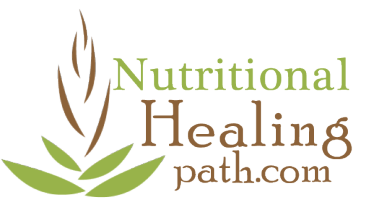BACKGROUND AND USES
Ginger has been used as a spice and medicinal herb by numerous traditions across the world for thousands of years – including Traditional Chinese Medicine, Japanese, Ayurveda, Native American and European herbalism. The rhizome (or underground stem) of the ginger plant is the usable portion of the herb.
Ginger can be used orally, topically or even intramuscularly, although not all of these delivery systems have scientific evidence to support their use. The historical or theoretical uses for ginger span a broad range of symptoms and diseases and for multiple systems and organs in the body from A to Z. A small sampling of these includes acute bacterial dysentery, asthma, athlete’s foot, headache, high blood pressure, laxative, menstrual cramps, psoriasis, stomach aches and ulcers, and upper respiratory infections. In the 9th and 10th centuries in Asia, ginger was recommended for stomachaches, diarrhea and nausea. In more modern times, it has been recommended for nausea, vomiting and slow digestion. In the U.S. it is commonly used for flatulence, nausea and as a seasoning or fragrance in foods, soaps and cosmetics.
MECHANISMS OF ACTION
The rhizome contains approximately 1-4% volatile oils, which are responsible for ginger’s pungent odor and taste, and also contain the medicinal constituents. Of the volatile oils, the gingerols and shogaols have received the most research attention and either one of them can be used as a marker for standardization.
The gingerols and shogaols exhibit cardio depressant activity and ginger has been shown to inhibit platelet aggregation in vitro but has had no effect in two human studies. Other cardiovascular research has demonstrated that oral ingestion of ginger extract can lower lipids and have anti-atherosclerotic effects in rabbits and mice, while also inhibiting the oxidation of LDL and preventing atherosclerosis in mice.
The mechanism of action for the use of ginger on nausea and vomiting is not clear, but it may have to do antagonistic effects on 5-HT3 receptors.
CHEMOTHERAPY INDUCED NAUSEA
There has also been a small amount of research studying the use of ginger for chemotherapy induced nausea. One randomized controlled trial examined the effect of ginger in 41 patients with leukemia and chemotherapy induced nausea. The control group was given an infection of Compazine and the other group was given doses of ginger capsules although the dose was not stated, as an adjunct to the Compazine injection, over the course of two days. The combination of the two treatments demonstrated a significant decrease in the severity and duration of the nausea, although there was no difference in the severity and duration of vomiting.
A small case series of 11 patients with T-cell lymphoma and frequent nausea found that 530 mg capsules given prior to their chemotherapy agent reduced their nausea by two thirds.
OSTEOARTHRITIS AND RHEUMATOID ARTHRITIS
The effectiveness of ginger for joint pain, whether it be osteoarthritis or rheumatoid arthritis, is as yet unclear. One randomized, controlled trial initially found that ginger had no effect on relieving symptoms of osteoarthritis. However, when the data was reviewed again with a different analytical method, ginger at 255 mg of concentrated ginger extract twice daily, did have a small effect on reducing knee pain while standing, better than the placebo group.
Another small controlled, double-blind crossover study was conducted in 75 individuals with knee and hip osteoarthritis. There were no significant differences between each of the groups in any of the measures of function. The study did find that ibuprofen for the first 3 weeks and then ginger for 3 weeks were more effective than placebo. However, the 1-week washout period between each group was likely inadequate, suggesting a possible carry-over effect from the ibuprofen to the ginger and thus a null study result.
Promising results were seen in a case series report of ginger in 56 individuals with rheumatoid arthritis, osteoarthritis or muscular discomfort. Most of the patients took 0.5 to 1 tsp of powdered ginger root each day, and 75% with either type of arthritis experienced pain relief and swelling to at least some degree. In the patients with just muscular discomfort, all reported relief of their pain after taking ginger. This study suffers from a lack of a placebo group, but is positive in its findings.
PRECAUTIONS AND CONTRAINDICATIONS
Ginger is on the U.S. FDAs GRAS (generally recognized as safe) list.
Ginger may increase bleeding by inhibiting thromboxane synthetase and inducing prostacyclin. For this reason, it should be used cautiously prior to surgery and cautiously or not at all with anti-coagulant medications.
Ginger should also be used cautiously in individuals with gastric or duodenal ulcers due to heartburn, and gastric and esophageal irritation, especially in non-encapsulated products.
Some individuals will have allergies to ginger and others in the same plant family.
DRUG/HERB/SUPPLEMENT INTERACTIONS
Ginger may interfere with antacids, H-2 antagonists or proton pump inhibitors due its potential of increasing stomach acid production.
In theory, ginger may enhance the effect of anti-coagulants and increase the risk of bleeding. Thus, concurrent use of ginger with anti-coagulants (whether pharmaceutical, herbal or nutraceutical), anti-platelet drugs and NSAIDS may increase the risk of bleeding.
Large doses of ginger may depress the central nervous system (CNS) and again, in theory, may enhance the effects of barbiturates, benzodiazepines and CNS depressants.
Ginger may have a dose-dependent inotropic effect and therefore may theoretically interfere with digoxin, beta-blockers or other positive inotropic agents.
While studies are lacking, there are some potential for hypoglycemic effects of ginger and it therefore may theoretically interfere/enhance glucose lowering medications.
REFERENCES
1 Shoji N, Iwasa A, Takemoto T, et al. Cardiotonic principles of ginger. J Pharm Sci 1982;71 (10):1174- 1175.
2 Verma S, Singh J, Khamesra R, et al. Effect of ginger on platelet aggregation in man. Indian J Med Res 1993;98:240-242.
3 Lumb A. Effect of dried ginger on human platelet function. Thromb Haemost 1994;71(1):110-111.
4 Bordia A, Verma S, Srivatava K. Effect of ginger and fenugreek on blood lipids, blood sugar and platelet aggregation in patients with coronary artery disease. Prostaglandins Leukot Essent Fatty Acids 1997;56(5):379-384.
5 Bhandari U, Sharma J, Zafar R. The protective action of ethanolic ginger extract in cholesterol fed rabbits. J Ethnopharmacol 1998;61(2):167-171.
6 Thomson M, Al Qattan K, Al Sawan S, et al. The use of ginger as a potential anti-inflammatory and antithrombotic agent. Prostaglandins Leukot Essent Fatty Acids 2002;67(6):475-478.
7 Fuhrman B, Rosenblat M, Hayek T, et al. Ginger extract consumption reduces plasma cholesterol, inhibits LDL oxidation and attenuates development of atherosclerosis in atherosclerotic, apolipoprotein E- deficient mice. J Nutr 2000;130 (5):1124-1131.
8 Lumb A. Mechanism of antiemetic effect of ginger. Anaesthesia 1993;48(12):1118.
9 Fulder S, Tenne M. Ginger as an anti-nausea remedy in pregnancy: the issue of safety. Herbalgram 1996;38:47-50.
10 Ozgoli G, Goli M, Simbar M. Effects of ginger capsules on pregnancy, nausea and vomiting. J Alternative and Complementary Medicine 2009;15(3):243-246
11 Sripramote M, Lekhyananda N. A randomized comparison of ginger and vitamin B6 in the treatment of nausea and vomiting of pregnancy. J Med Assoc Thai 2003; 86(9):846-853.
12 Willetts K, Ekangaki A, Eden J. Effect of a ginger extract on pregnancy-induced nausea: a randomised controlled trial. Aust N Z J Obstet Gynaecol 2003;43 (2):139-144.
13 Vutyavanich T, Kraisarin T, Ruangsri R. Ginger for nausea and vomiting in pregnancy: randomized, double-masked, placebo-controlled trial. Obstet Gynecol 2001;97(4):577-582.
14 Fischer-Rasmussen W, Kjaer S, Dahl C, et al. Ginger treatment of hyperemesis gravidarum. Eur J Obstet Gynecol Reprod Biol 1990;38(1):19-24.
15 Pace J, Conlin D. Oral ingestion of encapsulated ginger and reported self-care actions for the relief of chemotherapy-associated nausea and vomiting. Dissertation Abstracts International 1987;47(8):3297-B.
16 Meyer K, Schwartz J, Crater D, et al. Zingiber officinale used to prevent 8-MOP associated nausea. Dermatol Nurs 1995;7(4):242-244.
17 Ernst E, Pittler M. Efficacy of ginger for nausea and vomiting: a systematic review of randomized clinical trials. Br J Anaesth 2000; 84(3):1374-1377.
18 Phillips S, Ruggier R, Hutchinson S. Zingiber officinale (ginger)- an antiemetic for day case surgery. Anaesthesia 1993; 48(9):715-717.19 Bone M, Wilkinson D, Young J, et al. Ginger root- a new antiemetic. The effect of ginger root on postoperative nausea and vomiting after major gynaecological surgery. Anaesthesia 1990; 45(8):669-671. 20 Grontved A, Brask T, Kambskard J, et al. Ginger root against seasickness. A controlled trial on the open sea. Acta Otolaryngol 1988; 105(1-2):45-49.
21 Schmid R, Schick T, Steffen R, et al. Compoarison of seven commonly used agents for prophylaxis of seasickness. J Travel Med 1994;1:102-106.
22 Stewart J, Wood M, Wood C, et al. Effects of ginger on motion sickness susceptibility and gastic function. Pharmacology 1991; 42(2):111-120.
23 Holtmann S, Clarke A, Scherer H, et al. The anti-motion sickness mechanism of ginger. A comparative study with placebo and dimehydrinate. Acta Otolaryngol 1989;108(3-4):168-174.
24 Wood C, Manno J, Wood M, et al. Comparison of efficacy of ginger with various antimotion sickness drugs. Clin Res Pr Drug Regul Aff 1988;6(2):129-136.
25 Mowrey D, Clayson D. Motion sickness, ginger and psychophysics. Lancet 1982;1(8273):655-657.26 Ozgoli G, Goli M, Moattar F. Comparison of effects of ginger, mefenamic acid, and ibuprofen on pain in women with primary dysmenorrhea. J Alternative and Complementary Med 2009; 15(2):129-132.27Altman R, Marcussen K. Effects of a ginger extract on knee pain in patients with osteoarthritis. Arthritis Rheum 2001; 44(11): 2531-2538.
28 Bliddal H, Rosetzsky A, Schlichting P, et al. A randomized, placebo-controlled, cross-over study of ginger extracts and ibuprofen in osteoarthritis. Osteoarthritis Cartilage 2000; 8(10: 9-12.
29 Srivastava K, Mustafa T. Ginger in rheumatism and musculoskeletal disorders. Med Hypotheses 1992;39(4):342-348.
30 Backon J. Ginger in preventing nausea and vomiting of pregnancy; a caveat due to its thromboxane synthetase activity and effect on testosterone binding. Eur J Obstet Gynecol Reprod Biol 1991’42(2)”163- 164.
31 Backon J. Ginger as an antiemetic: possible side effects due to its thromboxane synthetase activity. Anaesthesia 1991; 46(8): 705-706/





